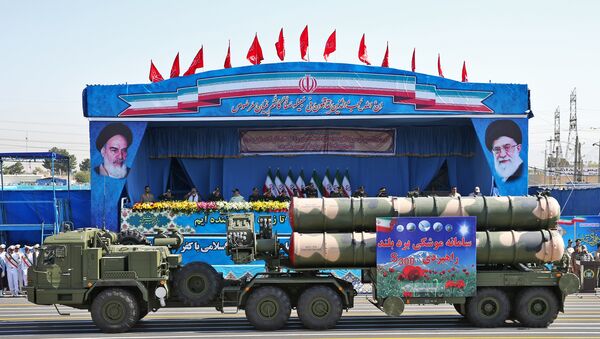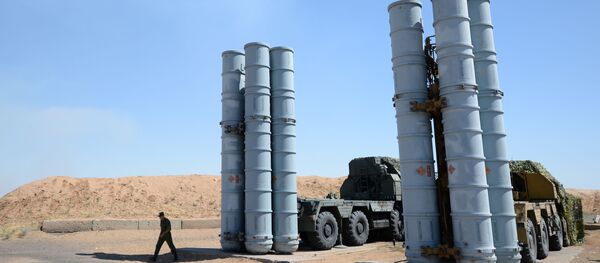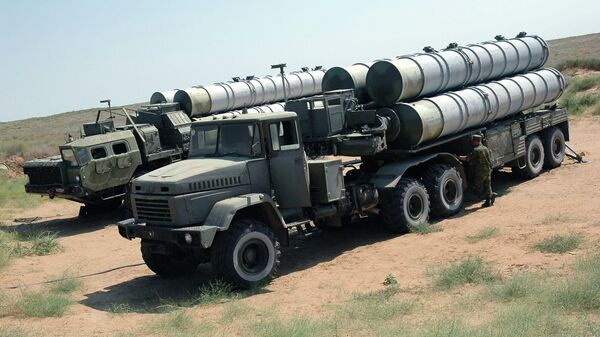The interview came after it was reported this week that Russia had fulfilled its contract to deliver S-300 long-range surface-to-air missile systems to Iran.
Speaking to Sputnik Persian, Vakhshiteh said that first and foremost Iran needs the S-300 missile systems to demonstrate its military power.
He recalled that in the run-up to the delivery of the S-300 systems, Iran had managed to develop a domestically made analogue of the S-300, producing a small amount of what Vakhshiteh described as an experimental series of cloned missile systems.
Now that the S-300 systems have been sent by Russia in accordance with the agreement, they will enter service with the Iranian army and will be showcased during the country's military parades, according to Vakhshiteh.
"This defensive weapon helps Iran solve two problems at once. Firstly, Tehran shows the Iranian army's power and ability to defend itself in the face of the enemy. Secondly, the S-300 has already become a symbol of close Russian-Iranian friendship and effective bilateral military cooperation," he said.
Touching upon the two countries' cooperation in the development of weapons, he noted that a number of global challenges and threats have prompted Moscow and Tehran to expand their partnership, which he said has reached a new level in the past several years.
Vakhshiteh referred to the "joint military action in Syria", saying that Russia and Iran will continue to boost this cooperation because security in Syria will help maintain security throughout the Middle East and beyond.
"The close military cooperation between our two countries adds to stability and security not only in Syria, Iraq, and the Middle East, but even in the Central Asian countries," he concluded.
On Thursday, the head of Russia's Federal Service for Military-Technical Cooperation said that Russia has finished executing a contract to supply Iran with divisions of S-300 air defense systems.
"All divisions have been supplied," Alexander Fomin told RIA Novosti.
The $900-million contract to deliver five Russian S-300 systems to Iran was signed in 2007. It was suspended after the adoption of UN Security Council sanctions agaisnt Iran in mid-2010.
In April 2015, Russia resumed talks to deliver the S-300 air defense weaponry following an agreement on the Iranian nuclear program.





